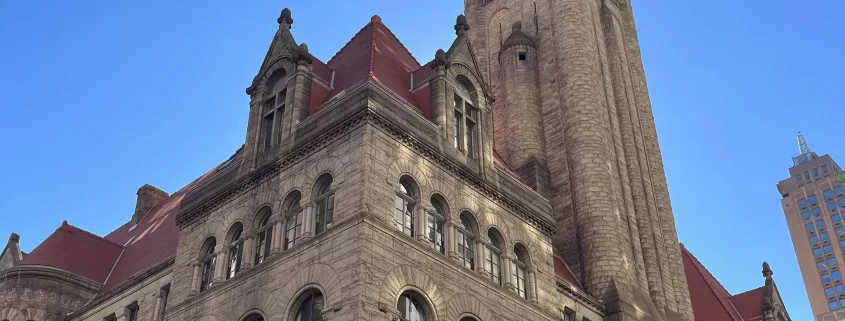
How to get a Short Certificate in Allegheny County
If you have a loved one who was living in Pittsburgh, Pennsylvania when they passed away, and they had a house or bank accounts that need to be transferred, then you will probably hear about something called a short certificate. A short certificate is required under Pennsylvania law to transfer many assets, including guns, a house or bank accounts of over $10,000. Short certificates are also necessary in other situations after someone has died. They are required to bring wrongful death actions or similar types of personal injury lawsuits.
The Allegheny County Register of Wills is in charge of issuing these certificates and for ensuring that the requirements of the law are followed by Executors and Administrators. The office is in the City County Building in downtown Pittsburgh, and is located on the First Floor. Generally, it is recommended to have an attorney when you start the estate administration process, as opening an estate and getting a short certificate creates obligations for you and starts the clock running on deadlines.
So what does all this mean for you? If someone you love has passed away and you need to get a short certificate, you will need an attorney to help you fill out a petition for a Grant of Letters which opens what is called “probate.” Once you have sworn in as the Executor or Administrator, you are able to transfer bank accounts, pay bills, transfer a home to the person who wants to buy it in exchange for funds, file an inheritance tax return and get the estate closed out. But remember: the deadlines are important to keep to, and failing to follow these steps can open the Administrator or Executor to personal liability.
Whether you’re living out of state or are an out-of-state attorney with a client that needs probate opened, the Cornerstone Law Firm team is here to help. Our estate lawyers and paralegals can also help you walk through making sure that your Allegheny County estate properly pays creditors, disputes any claims that don’t need to be paid, and takes care of all of the beneficiaries in the estate.
If you have questions about how to open an estate in Pittsburgh, Pennsylvania, call our office and talk with one of our probate lawyers so that we can help you with the next steps.
